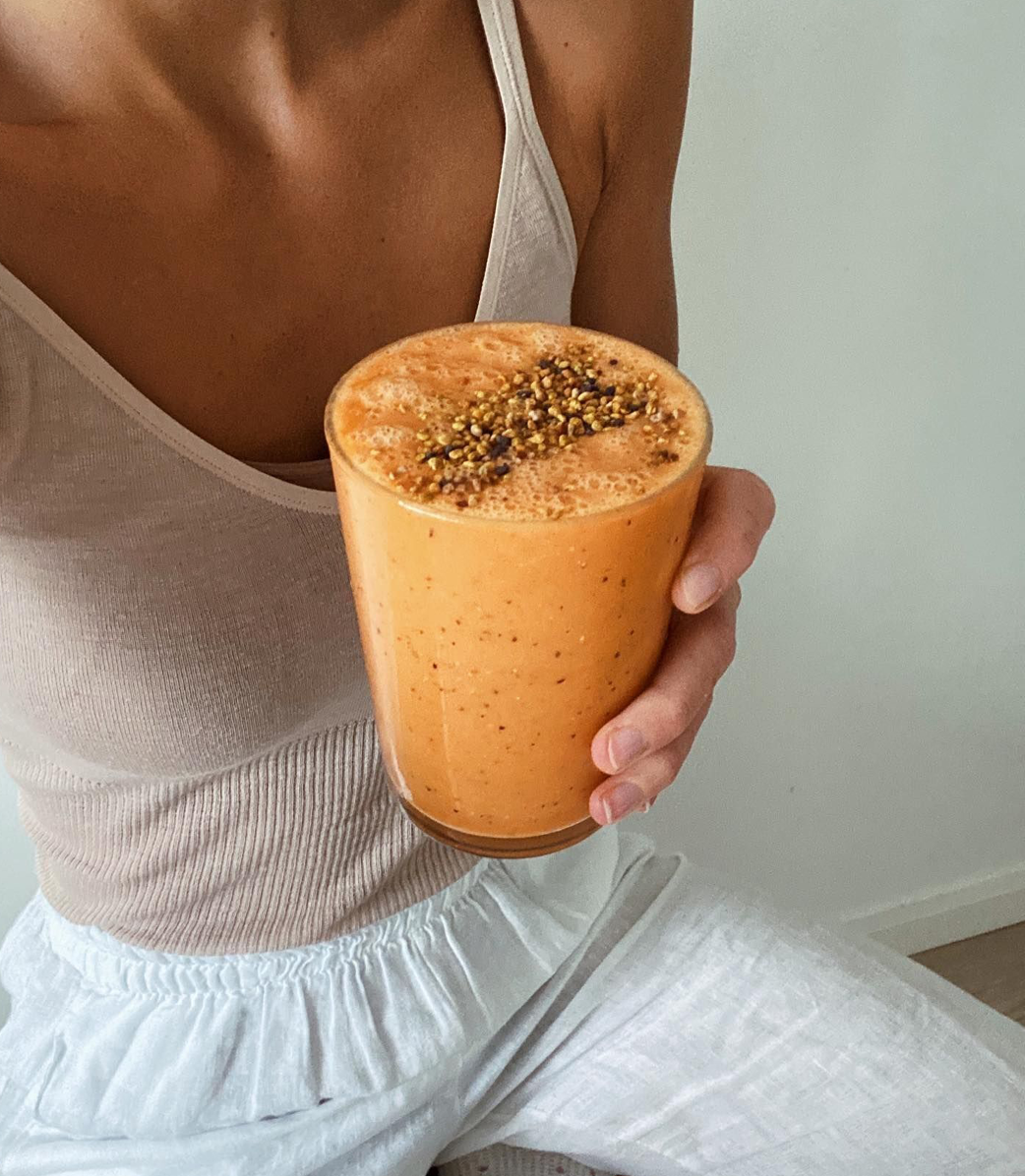Gut Health: How Can We Improve It?

Good news, ladies! If you have been neglecting your gut health lately, it is not too late to bring it back to life!
Maintaining a healthy gut is super important for all aspects of your health which we will dive into more throughout this blog post.
With hectic lifestyles and modern dietary patterns these days, our gut health often gets thrown out of balance. In order to improve digestion, boost our immune system, stabilise our moods and enhance our overall health, we need to be prioritising our gut health in our day-to-day life.
Get ready to improve digestion, boost your immune system, and unlock your optimal, healthy gut!
What exactly is gut health and why’s it so important?
The gut is often referred to as the "second brain," because it plays a crucial role in our overall health.
How?
It is home to trillions of bacteria known as the ‘gut microbiota’, which have a big impact on our digestion, metabolism, and immune function. These bacteria are always communicating back and forth with our brain and influencing signals and processes all across our body.
Sounds complex? Because, It is!
Essentially, a healthy gut microbiota is associated with improved mental health, reduced risk of chronic diseases, and improved nutrient absorption [1].
Nourishing your gut with the right foods can positively impact your mental health and your overall well-being.
What can influence our gut health?
The foods we do, and foods we don’t eat!
A balanced and diverse diet is crucial for maintaining optimal gut health. But, this is not all.
There are many other lifestyle factors that can positively and negatively impact our gut health such as stress, exercise, sleep and your daily habits. Keep reading to find out how you can optimise your diet and lifestyle to achieve a healthy gut.
Tips for a healthier gut
Reduce processed foods
Highly processed foods often lack fibre and are low in nutritional value. These foods can disrupt the balance of gut bacteria and contribute to inflammation.
Opt for whole, unprocessed foods as much as possible.
Fibre, fibre, fibre!
Adequate dietary fibre intake is vital for a healthy gut.
Fibre acts as a broom, sweeping away waste and keeping your digestive system running smoothly.
Including a variety of fibre-rich foods in your meals, such as whole grains, fruits, vegetables, legumes, and nuts supports regular bowel movements, and also feeds the beneficial bacteria in your gut, promoting a diverse and thriving microbiome.
So, why not kick-start your day with a colourful bowl of oats topped with berries and nuts? Your gut will thank you with lots of energy to take on the day! For more fibre-filled options, head to the Move With Us App to explore our ever-expanding library of over 1000+ delicious and nutritious recipes.
Embrace plant-based diversity
A plant-rich diet provides essential nutrients and a wide range of fibre.
Incorporate a variety of colourful fruits, vegetables, whole grains, legumes, and nuts to nurture a diverse gut microbiota.
Each colour provides unique vitamins, minerals, and antioxidants that promote gut health.
Include fermented foods
Fermented foods, rich in probiotics, can support a healthy gut microbiota. Regularly include fermented foods like yoghurt, kombucha, tempeh, and miso in your diet.
Hydration is key
Water aids digestion, helps prevent constipation, and supports the transport of nutrients from your food into your body.
Aim for at least eight glasses of water per day and hydrate with herbal teas or infused water for added benefits.
Manage stress
Chronic stress can negatively affect your gut health - so, it may be time to take that day off…
Engage in stress-reducing activities like meditation, yoga, deep breathing exercises, or hobbies to support a healthy gut-brain connection.
If we don’t control our daily stress, it can turn to chronic stress! Chronic stress can disrupt the balance of gut bacteria, compromise gut barrier function, and contribute to digestive disorders.
Quality sleep is essential
Aim for 7-8 hours of uninterrupted sleep each night to promote digestion, and support a healthy gut microbiota.
Establish a healthy bedtime routine and create a sleep-friendly environment to prioritise restful sleep.
Regular physical activity
Exercise supports healthy gut motility and blood flow to the intestines, aiding digestion and reducing the risk of gut-related issues.
Engage in moderate-intensity exercises like brisk walking, cycling, or dancing for at least 30 minutes most days of the week.
Regular physical activity helps maintain a healthy weight, improves gut transit time, and supports the diversity of gut bacteria.
Should you seek professional help for gut health?
While implementing evidence-based nutrition strategies can significantly improve gut health, it's essential to consult a healthcare professional or a registered dietitian for personalised advice.
They can help identify specific dietary needs, manage underlying conditions, and recommend appropriate supplements if necessary!
Let’s Sum it up
Looking after your gut health is such an important part of your overall health and well-being.
By understanding the importance of gut health, improving your nutrition, adopting healthy lifestyle habits, and seeking professional guidance when needed, you can optimise your gut health and experience the benefits of improved digestion, enhanced immune function, and better overall health!
It is never too late to prioritise your gut health - head to the Move With Us App to explore our ever-expanding library of over 1000+ delicious and nutritious recipes.
References
[1] Sonnenburg, J. L., & Sonnenburg, E. D. (2014). Starving our microbial self: the deleterious consequences of a diet deficient in microbiota-accessible carbohydrates. Cell metabolism, 20(5), 779-786.






